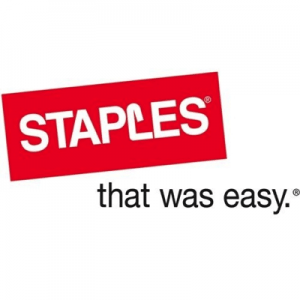[I am not a tax advisor. Please consult your tax advisor for advice. This is for informational purposes only.]
A lot of people were confused about the $1,200 checks/deposits slated to be given out as part of the massive US stimulus bill which is expected to be approved into law tomorrow.
Does it evaluate your income based on 2018, 2019, or 2020?
According to the most recent information, it’s clear that the feds will be using your 2019 tax return to determine your eligibility. If you have not yet filed your 2019, only then will they use your 2018 tax return.
However, people smarter than me have confirmed that it’s really dependent on your 2020 income, such that if you earn less in 2020 than you did in 2018/2019, that will make you eligible. You’ll get the money back when you do your 2020 taxes.
Note: news sources indicate that the feds are not planning on clawing back your check if you earn more. So, in the end, people will get the better of the two: if you made less in 2020, you’ll eventually get the money when you do your 2020 taxes; if you made less in 2018/2019, you can get the check and it won’t get clawed back from you.
This being the case, it’s important to decide now whether to file your 2019 tax return. The deadline for filing was pushed out until July 15th, but it’s worth crunching some numbers to see whether to file or not (see below). Regardless, you don’t have to pay the bill until July 15th, but it could still be worth filing now.
Should You File Now?
If you’ve already filed your 2019 return, there’s nothing you can do. If you have not yet filed, then…
- If your income in 2018, 2019, and 2020 is all under $75,000 or over $99,000 (double that for couples filing jointly) then it doesn’t matter if you file your 2019 return now or you wait to file later.
- If your income in 2018 was less than $99,000 (double that for couples) AND your income has increased for 2019 and 2020 you don’t want to file your return until after receiving the stimulus money.
- If your income in 2019 and 2020 has decreased to less than $75,000 (double that for couples) and in 2018 your income was above $75,000, then you’ll want to file your return to get the money faster. You’ll end up getting the same amount of money anyway since you’ll get it as a refund with your 2020 taxes, but filing your 2019 return will help you get it faster.
- If your income in 2018 and 2020 is/will-be more than $99,000 and your income for 2019 is less that, be sure to file as soon as possible as you could be losing out on thousands of dollars by not filing now. They’ll look at your 2018 return and they won’t give you a check. They’ll look at your 2020 return and they won’t give you a refund. BUT if you file now, they’ll send you a check and they reportedly will not claw it back.
No exact date is known for when they’ll look to see your tax return. Will they process a massive list on the date that the bill passes into law (expected on 3/27/20)? Will they check each person on the date the checks/deposits are being sent out (will likely be another couple of weeks)? It’s not known exactly how it’ll play out, but suffice it say that if you would gain by having your 2019 numbers in the system I’d do it sooner rather than later and hope for the best.
Other Reasons To File
A bunch of other reasons you might want to file your return now:
- If you had a child during 2019 or 2020, you might want to file your return so that the feds know to credit you for the child. If you don’t file now, it’s unclear if they’ll use other records to credit you or they simply won’t credit you. My guess is that they won’t send you the money now, but they’ll send it back to you when you do your 2020 taxes. That’s just a guess.
- If you were a dependent in 2018 and not in 2019 (e.g. you are a 20 year old college student and in 2018 your parents filed you as dependent and in 2019 you are planning to file on your own), then you’ll want to file quickly. That way, you’ll get the $1,200 payment. If you don’t file now, you should get the $1,200 as a refund/deducted when you file your 2020 tax return.
- If you’ve never filed a tax return in the past in which case it might be hard for the feds to find you to get you the check.
- Similarly, if you have a new address or new bank, it might be beneficial to file now; the feds should find you eventually, but it’ll be quicker if they have your update info. (You can change your address using this form, though it’ll take a number of weeks to process. You can also try calling the IRS at 800-829-1040, M – F, 7 a.m. – 7 p.m. to try changing your direct deposit info.)
Related:
- Stimulus: Government To Send Out $1,200 Checks/Deposits To Most US Residents; Expanded Unemployment & More
- Stimulus Bill Adds $300 Charitable Contribution Deduction For 2020 & Beyond
- Stimulus Bill Forbids Credit Agencies From Issuing Negative Marks For Certain Deferred Payments
- Stimulus Bill: Making Sense Of The Options For Small Businesses & Employers (Grants + Loans)
- Stimulus Bill: Explaining the Unemployment Benefit for Employees, Self-Employed & Gig Workers
- Stimulus Checks: People Who Don’t File Taxes Can Register Their Bank Info With IRS-TurboTax Online Portal To Get Their $1,200
- Stimulus: EIDL Grant For Small Businesses Will Be $1,000 Per Employee, Per SBA Clarification
- IRS Now Lets You Check Your Stimulus Payment Status
- A Few Updates On Those $1,200 Stimulus Checks
- A Few Updates On The Small Business Grant & Loan Programs (PPP, EIDL Funding Round 2)
- IRS Website Finally Allows You To Add Bank Information For $1,200 Stimulus Direct Deposit
- Lawmakers Overhaul PPP Loan Forgiveness Program For Small Businesses
- EIDL Loan & Grant Program Reopens For New Applications






